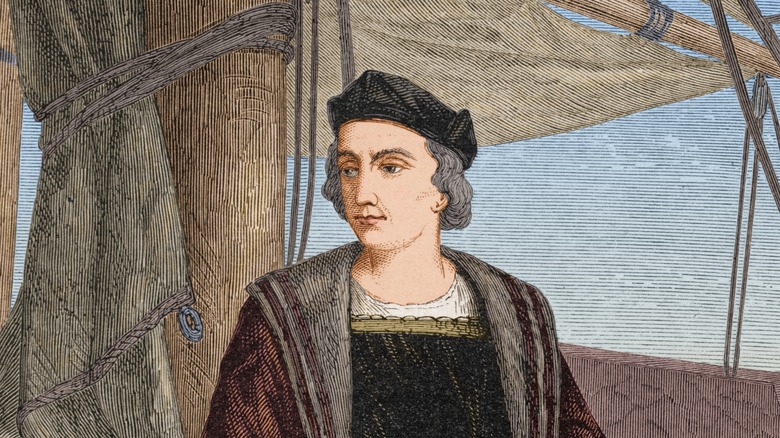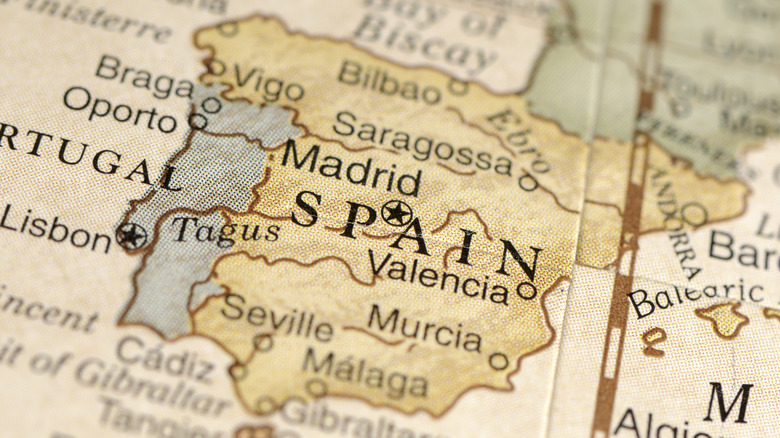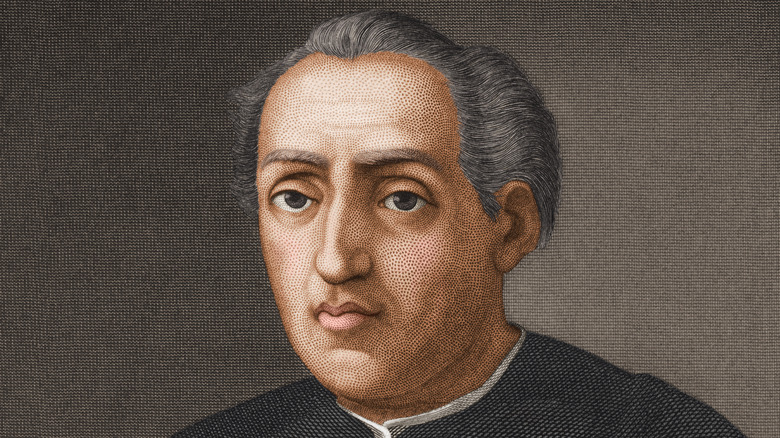The New DNA Claim About Christopher Columbus That Could Change Everything
A lot of the information about Christopher Columbus taught in schools to generations of children just wasn't true. Many myths about Columbus persisted centuries after his 1492 westward expedition that helped lead to vigorous European exploration and colonization of the Americas. Chief among the misconceptions about Columbus: He didn't actually discover America, nor did he ever reach the mainland; he landed on an island in what's now the Bahamas. Nor was his name really "Christopher Columbus." That's an anglicization of the Cristoforo Colombo, the explorer's real name given to him upon his birth in the Republic of Genoa, hundreds of years before it would become a part of Italy.
Ever since Columbus sailed his way into the history books in the late 15th century, it's been taken as a point of historical fact that the explorer was Italian, by way of Genoa. Various historians have attempted to prove that Columbus was from their homeland, with cases being made for Portugal, Germany, Greece, France, England, and Castile. But the man attested to his Genoese heritage in surviving documents, including his will, calling for his descendants to take care of the region, "because from it I came and in it I was born" (via Brigham Young University).
His word notwithstanding, there's a possibility that Columbus really wasn't Genoese. Thanks to modern DNA analysis technology, scientists have taken a deep dive into Columbus's lineage, and they may have found something that changes everything we know about the infamous explorer.
Christopher Columbus may have been born Jewish in Spain
Purportedly born in an Italian region, Christopher Columbus made his 1492 voyage on behalf of Spain, because its monarchs, King Ferdinand II of Aragon and Queen Isabella of Castile, paid for it. According to a study that took more than 20 years to complete, off and on, Columbus may have been from Spain, too.
On October 14, 2024 — commemorated in the U.S. and Spain as the day that Columbus reached the Americas — Spanish TV network RTVE aired the documentary "Colón ADN: Su verdadero origen" ("Columbus DNA: His True Origins"). It detailed the 23-year project conducted by University of Granada professor of legal medicine, José Antonio Lorente, to determine the steadfast truth of Columbus's origin.
In 2001, historian Marcial Castro prompted Lorente to exhume Columbus's body and use DNA testing to determine if the remains really belonged to those of the explorer. The genetic material therein matched that of the also tested remains of Columbus's son, Hernando, and brother, Diego. Work stagnated on the project from 2005 to 2020, until the DNA analysis technology got advanced enough to allow for more accurate results.
After testing for more than 25 different national and cultural possibilities, the data Lorente generated pointed to Columbus being not Genoese but Sephardic Jewish, making for a high probability that he was born in the Iberian Peninsula, home to Spain and Portugal.
Christopher Columbus being a Spanish Jew is still just a theory
The idea that Christopher Columbus was Jewish and that he kept that hidden throughout his life has long been floated as a theory by historians. When Columbus was a young man in the 15th century, Jews from Iberia faced expulsion and anti-Semetic persecution. It just so happens that thousands of Jewish refugees from Spain resettled in Genoa, but that wasn't really happening until the 1490s when Columbus had begun his sailing career. To operate as a high-level businessman and explorer, so goes the theory, Columbus would've had to have pretended he wasn't of Jewish origin.
Moreover, "Colón ADN: Su verdadero origen" didn't reveal much hard science or share a lot of concrete data from Professor Lorente's DNA analysis. Nor has any of the information been peer-reviewed or published in an academic journal, par for the course for taking a scientific theory and turning it into fact in the public consciousness. Still, there's more support than ever for the notion that Columbus was a Jewish man from Spain.


